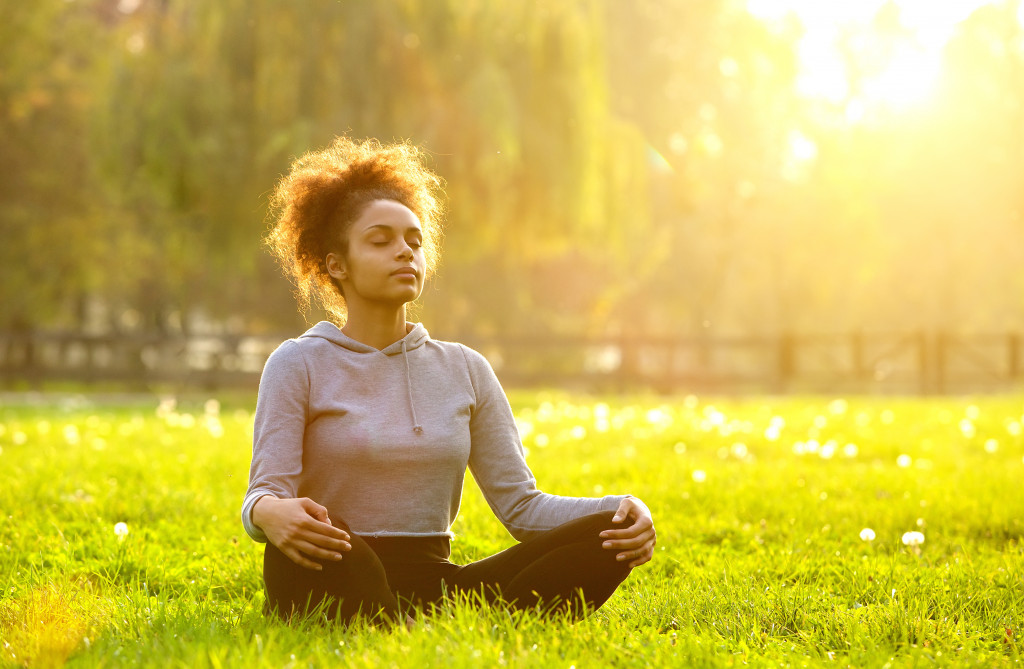Disclaimer: This website provides health information for educational purposes only and is not a substitute for professional medical advice, diagnosis, or treatment. Always seek the guidance of a qualified healthcare provider with any questions you may have.
• Sunlight is essential for producing Vitamin D, vital for bone health and other bodily functions like immunity.
• Not getting enough sunlight can lead to fatigue, depression, an increased risk of diseases like cancer or osteoporosis, and disruption of sleep cycles.
• Seasonal Affective Disorder (SAD) is a type of depression caused by a lack of exposure to natural light.
• It is recommended that adults get at least 15 minutes of direct sunlight per day, but the amount may vary depending on factors like where you live and skin type.
• Increase the natural light in your home, take a brisk walk during lunchtime, and start your day with some morning sunshine to get enough vitamin D.
Many people underestimate the importance of getting enough sunlight in their daily lives. While it can be tempting to stay indoors, the reality is that not getting enough sun can have serious health consequences. Here’s what happens if you don’t get enough sunlight and how to ensure you get your daily dose of vitamin D.
What Happens If You Don’t Get Enough Sunlight?
Your body needs sunlight exposure to produce Vitamin D, essential for bone health and other bodily functions. Without enough Vitamin D, your body can start to suffer from various symptoms such as fatigue, depression, impaired immunity, and an increased risk for diseases like cancer and osteoporosis. Additionally, not getting enough sunlight can lead to an imbalance in your circadian rhythm (your body’s natural sleep cycle), which can cause insomnia and further disrupt your mental health.
Seasonal Affective Disorder (SAD)
Furthermore, a lack of exposure to natural light can lead to Seasonal Affective Disorder (SAD), a type of depression that occurs during the winter months when there is less sunlight available. SAD symptoms include low energy levels, difficulty sleeping, weight gain or loss, and feelings of hopelessness or worthlessness. If left untreated, SAD can seriously affect an individual’s mental health.

How Much Sunlight Do You Need?
It is recommended that adults get at least 15 minutes of direct sunlight per day to maximize their Vitamin D production and reap other benefits from the sun’s rays. However, it’s important to note that sunscreen blocks some UVB rays (which are responsible for producing Vitamin D), so it’s best to limit sunscreen use outside or choose a broad-spectrum SPF that still allows UVB rays through. Of course, the amount of time you should spend in the sun will depend on factors like where you live, skin type, and any medications you’re taking, so it’s always best to check with a doctor before increasing your sun exposure too much.
Ways to Get Enough Sunlight
If you’re struggling to get enough sunlight every day, consider following some of these tips:

Add Natural Light to Your Home
More natural light in your home is a great way to increase your daily exposure. Consider opening up curtains and blinds, adding mirrors, or even rearranging furniture to maximize the sunlight in your home.
Moreover, a great rooflight can add a lot of natural light to your home. A robust framed flat rooflight can enhance the beauty of your home and add natural light to it. It can be installed on both pitched and flat roofs, making it an excellent option for many homeowners.
Bask in the Morning Sunshine
One of the best ways to soak up some early-morning vitamin D is to step outside for 15 minutes first thing in the morning. This will help reset your circadian rhythm, give you an energy boost for the day ahead, and set you up for a good night’s sleep. If you don’t have access to natural sunlight during your morning routine, try using a sunrise alarm clock or lamp to mimic natural light indoors.
Go Outside During Your Lunch Break
If you work indoors all day long and feel sluggish by lunchtime, try taking advantage of the midday sunshine. A brisk walk during your lunch break can be just what your body needs after sitting at a desk all morning. It will energize you for the rest of the day ahead and give you a much-needed respite from being inside all day long.
Sunlight plays a vital role in our overall health and well-being—but unfortunately, many people don’t get enough of it. By understanding what happens when we don’t get enough sunlight and being mindful about our daily sun exposure, people can ensure they’re getting the vitamin D their bodies need while avoiding any potential risks associated with too much time spent in the sun. So take a few moments each day to soak up some sunshine! Your body will thank you for it.




